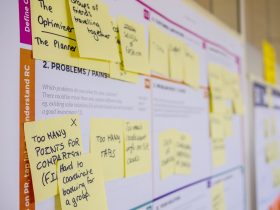Hello there, fellow money-savvy readers! I’m Lisa Greenfield, your friendly neighborhood financial guru, and today we’re diving deep into the fascinating world of ethical financial literacy. For the past four years, I’ve been sharing my quirky insights and practical tips on ethical spending, and today we’re exploring how this knowledge can revolutionize your personal finance management.
So, grab your favorite coffee mug, settle into your comfiest chair, and let’s embark on this enlightening journey to financial enlightenment.

Understanding Ethical Financial Literacy
First things first, what exactly is ethical financial literacy? It’s not just about knowing how to balance your checkbook (though that’s important too). Ethical financial literacy is all about making financial decisions that align with your values and the greater good. It’s about ensuring your money works for you while also contributing positively to society and the environment.
The Power of Ethical Money Choices
Let’s start with the basics. Ethical financial literacy empowers you to make conscious choices with your money. When you understand the environmental, social, and ethical implications of your financial decisions, you can steer clear of investments or purchases that might harm the planet or exploit vulnerable communities.
For instance, instead of putting your money into companies that prioritize profits over sustainability, you might opt for investments in renewable energy or socially responsible businesses. By doing so, you’re not only safeguarding your financial future but also playing a role in creating a better world.
Case Study: Ethical Investing
Consider this scenario: You have $10,000 to invest. With traditional financial literacy, you might put it all into a generic mutual fund, hoping for the best returns. But with ethical financial literacy, you take a different approach.
You research and discover a sustainable investment fund that aligns with your values, supporting companies committed to reducing their carbon footprint and promoting fair labor practices. Over time, your investment grows, and you’re not just earning a return on your money; you’re actively participating in the fight against climate change and social injustice.
The Ripple Effect of Ethical Spending
Ethical financial literacy doesn’t stop at investing; it also extends to your everyday spending habits. When you become mindful of where your money goes, you can make choices that have a broader impact. Let me share a personal anecdote to illustrate this point.
A few years ago, I decided to switch to a local credit union instead of a big, faceless bank. I found out that my credit union actively supported local businesses and community development. Now, whenever I deposit money or take out a loan, I know my financial institution is putting my money to work in ways that benefit my neighbors and community. It’s a small change, but it’s a step toward more ethical spending.
Building a Sustainable Financial Future
Ethical financial literacy isn’t just about feeling warm and fuzzy inside. It’s about building a sustainable financial future that aligns with your values. Let’s look at a few practical steps you can take to incorporate ethical financial literacy into your life:

- Define Your Values: Start by identifying the causes and issues that matter most to you. Is it climate change, social justice, or something else? Knowing your values will guide your financial decisions.
- Research Investments: Explore ethical investment options like socially responsible mutual funds, green bonds, or impact investing. These choices can grow your wealth while supporting your chosen causes.
- Ethical Banking: Consider switching to a local bank or credit union that reinvests in your community. You’ll not only get better service but also support local businesses and initiatives.
- Mindful Spending: When you shop, look for products and brands that align with your values. Whether it’s fair trade coffee, eco-friendly clothing, or cruelty-free cosmetics, your purchases can make a difference.
- Reduce, Reuse, Recycle: Adopt a sustainable lifestyle by minimizing waste, reducing your carbon footprint, and repurposing items when possible. This not only saves money but also benefits the environment.
Conclusion
In a world where money rules, ethical financial literacy gives you the power to be a conscious consumer and investor. It’s not just about making smart financial choices; it’s about making choices that reflect your values and contribute to a better world.
Over these past four years, I’ve seen the transformative impact of ethical financial literacy on people’s lives. It’s not always easy, and it may require some adjustments, but the rewards are immeasurable. So, let’s take a step toward a brighter financial future—one where our wallets align with our hearts.
Remember, when you make ethical financial choices, you’re not just managing your personal finances; you’re helping shape a more ethical and sustainable world. That’s a legacy worth building, and it all starts with financial literacy and the choices you make today.

































